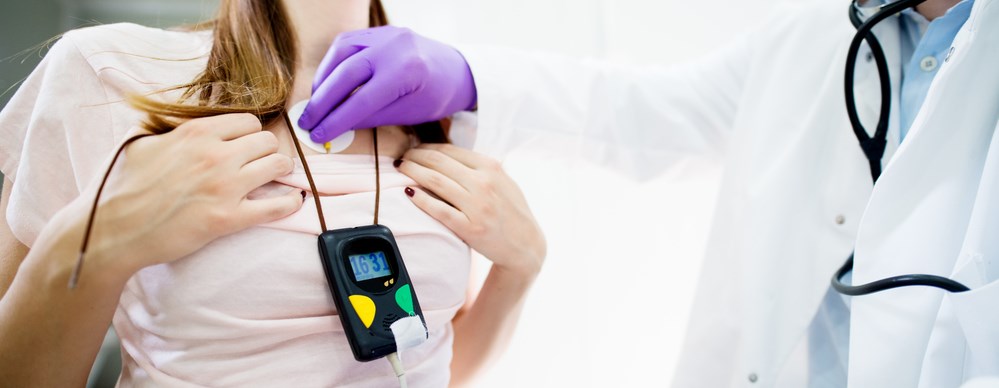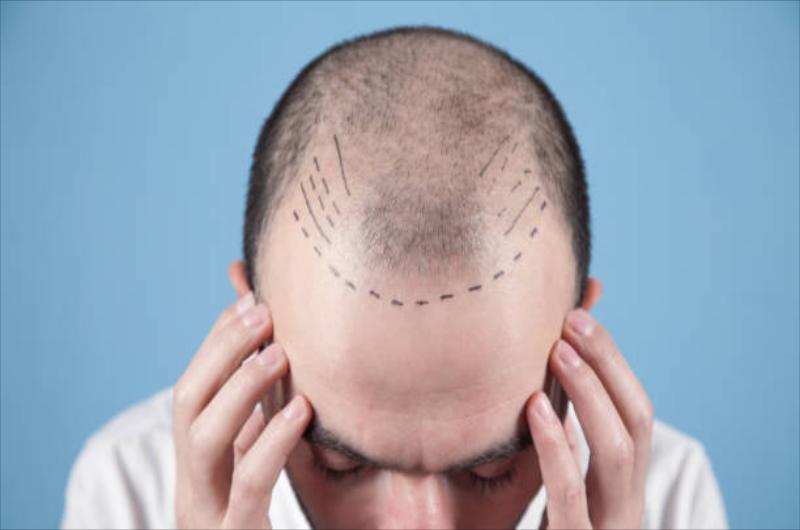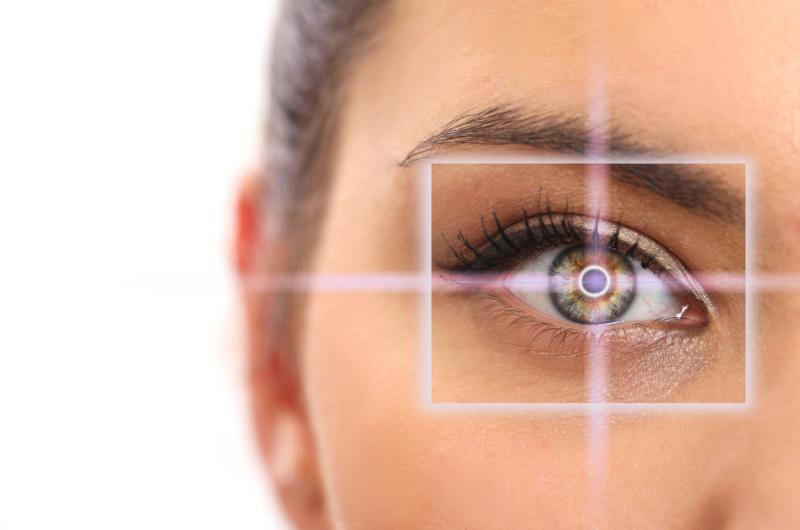About Treatment
In the case when the data of a conventional electrocardiogram is not enough to detect heart rhythm disturbances, Holter ECG is used. Holter ECG monitoring system (HM ECG) is a continuous recording of the heart rate for a certain time (day or more, according to indications). Such an approach in the diagnosis of heart diseases allows us to trace the changes that have arisen in its activity under the influence (or in the absence) of any loads: in sleep, during wakefulness, eating, manifestations of emotions, and so on.
Preparation for the procedure
Before the Holter monitoring procedure, you must take a shower. Do not apply cream or other products. The skin surface must be clean and dry. For men, it is better to remove the hair, as the subsequent removal of the electrodes can be painful.
Installation of the device
At the appointed time, disposable electrodes are attached to patient's chest, from which wires go to a special device. It is small in size and light in weight. The device records information from the electrodes. It is attached to a belt or with a shoulder strap. It is best to wear a tight-fitting T-shirt or T-shirt on top of the wires to avoid touching the wires with your clothing.
Monitoring
Patient is given a device with which he walks for a certain time. At the end of this period, the device is returned to clinic. Within 24 hours, with daily monitoring of an ECG by Holter, patient must adhere to some rules:
do not allow water to enter the electrodes;
if physiotherapy is prescribed, skip the session;
periodically check the electrodes, attach them back when peeling off.
Also, all the time while monitoring is taking place, patient must record his actions, emotions, sensations in the body and heart. In addition, these records should be supplemented with data on medication (which and how much), food (composition, volume, and others). Such a comprehensive observation of the state of the heart allows you to more effectively detect the slightest deviations in its activity.
Holter monitoring procedure is automated. But person will also have to make a little effort. He will be asked to keep a diary, in which it is necessary to record:
1. Activities during the day (walking, physical or emotional stress, etc.).
2. Time of rest and change of occupation.
3. Well-being when doing certain things, as well as during the rest period.
There are several principles for conducting holter monitoring:
fragmented (event-driven);
constant.
With a continuous Holter ECG over 24 hours, up to 100,000 heart beats are recorded. With a permanent record, the recorder stores information about the cycles of the heart for some time before the onset of an arrhythmia attack or the onset of pain symptoms. This function is necessary if patient suddenly forgets to press the registration button immediately.
Fragmented Holter monitoring is performed when arrhythmia symptoms are infrequent. Such research may require a longer execution time. The registration principle is simple: when patient feels the signs of rhythm disturbance, he presses a button on the portable device, and the recorder makes an electrocardiogram.
After you have given recorder and diary, cardiologist takes the data from the device and enters the information from the diary to computer. The digital system analyzes the data and displays a daily electrocardiogram. Based on this information, a conclusion is made.
Indications for Holter monitoring are:
problems with the rhythm of the heart;
pain in the chest area;
the need for additional examination after myocardial infarction or other heart diseases;
apnea or snoring;
frequent fainting or dizziness;
the need to analyze the effectiveness of drug therapy;
metabolic syndrome;
control of a pacemaker.
Holter ECG daily monitoring has no contraindications. It can be performed on both children and adults of any age and at any time. The only moment due to which the procedure may be postponed is acute inflammation of the skin in the chest area.
Daily Holter heart rate monitoring allows you to assess the blood supply to the heart muscle, frequency, and sequence of contractions. Thanks to diagnostics, it is possible to determine and timely prevent the development of various pathologies of the cardiovascular system, for example, such as:
arrhythmia (heart rhythm disturbances);
angina pectoris;
hypertension (increase or decrease in blood pressure);
cardiac ischemia.
In addition, monitoring can provide more detailed information about:
localization of ischemia;
the relationship between the manifestation of angina pectoris, as well as asymptomatic ischemic heart disease with changes in ECG indicators and the conditions for the occurrence of pathologies;
the nature of the displacement and direction of ST-T during attacks of angina pectoris.
Daily heart monitoring is an informative and highly accurate diagnostic method that allows you to obtain a large amount of data about patient's health.











